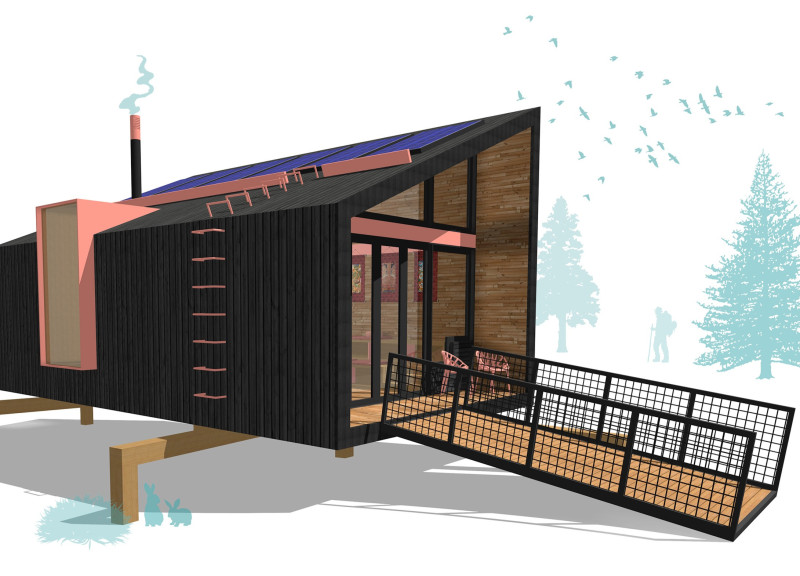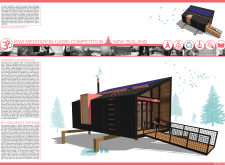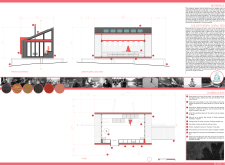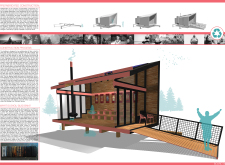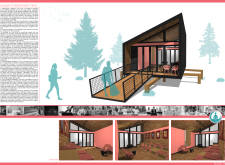5 key facts about this project
The Kiwi Meditation Cabin is a conceptual architectural project designed to serve as a dedicated space for meditation amid New Zealand's natural landscape. This project embodies a commitment to tranquility and sustainability, focusing on fostering mental well-being through its architectural features. It integrates seamlessly with the site's geography, reflecting the surrounding environment while promoting personal reflection and respite.
### Integrative Design Approach
The meditation cabin employs a design that prioritizes harmony between the built environment and nature. The structure features a combination of local timber and expansive glass panels, which not only provide visual continuity with the landscape but also maximize natural light within the interior spaces. The use of these materials contributes to a warm and inviting atmosphere, fostering mindfulness practices. The exterior form of the cabin is raised on stilts, reducing ground disturbance and providing elevated views of the natural surroundings. This elevating approach further enhances the user's connection to nature, a crucial element of the meditation experience.
### Functional Layout and Spatial Organization
The interior layout is strategically designed to accommodate various meditation practices. The project includes flexible spaces that can cater to both individual solo meditation and group activities. The entryway leads into an open area designed for quiet reflection, while adjacent spaces can be utilized for communal gatherings, workshops, or personal practices. The arrangement allows for easy circulation while encouraging a peaceful flow throughout the cabin.
Unique to this project is the emphasis on prefabricated construction methods, which enhance the efficiency of building assembly and minimize environmental impact. By using locally sourced materials and reducing waste, the design aligns with contemporary architectural demands for sustainability. Additionally, the incorporation of solar panels as part of the building’s energy strategy underscores a forward-thinking approach to energy efficiency and environmental stewardship.
### Aesthetic Considerations and Materiality
The aesthetic of the Kiwi Meditation Cabin blends natural and modern elements, with a design language that reflects tranquility and simplicity. The warm tones of the local timber are complemented by coral red accents that provide visual interest without overwhelming the serene environment. Interior furnishings are kept minimalistic to enhance comfort while maintaining a focus on functionality essential for meditation.
The thoughtful integration of metallic elements, such as metal gratings for safety, further showcases a modern aesthetic while ensuring durability and resilience against the elements. The use of bamboo in specific design components also highlights eco-conscious material choices, reinforcing the project's commitment to sustainable practices.
Explore the architectural plans, sections, and design details of the Kiwi Meditation Cabin for a thorough understanding of its innovative approach to meditation space design. Engaging with these elements will provide deeper insights into how the project merges architecture with the principles of mindfulness and sustainability.


